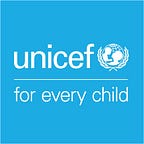Growing perils for children online
As children’s access to the Internet increases, efforts to better protect them from perils online must keep pace.
Information and communication technologies, including the Internet, are revolutionizing children’s access to information, education and social networks. As more and more children and adolescents worldwide connect online, they must be empowered to take advantage of the amazing opportunities the digital world offers, but they also need to know how to protect themselves from harm.
UNICEF works to tackle online child sexual exploitation worldwide, including in the Philippines. The port city of Cebu in Central Visayas Region is a paradise for local residents and tourists, but the area is known as a hub for sexual exploitation in travel and tourism.
Cebu’s vibrant street market is frequently bustling with locals and tourists, belying the perils for children online. The Philippines has enacted safeguards, new laws and programmes to protect children from sexual abuse and exploitation — online or offline.
In metropolitan Manila, Internet cafes are popular among children, who can gain easy, unsupervised access to the outside world at these brick-and-mortar sites. Boys in the Philippines play video games online in a darkened back room at an Internet café on the outskirts of metropolitan Manila.
Social media greatly influences children’s lives. Jan, 16, with other girls using their mobile phones after classes, followed advice from an online post about using self-injury as a way to cope with depression, peer pressure and cyberbullying.
Jan received help and counselling, as well as training about social media, through a UNICEF-supported CyberSafety programme. She now works with UNICEF to educate her peers about online safety. Jan (in the background) plays the guitar while her brothers use a tablet.
In the Philippines, the UNICEF-supported Child Protection Network Crisis Centre in Manila provides medical check-ups and counselling for victims of child abuse, as well as support for their families. A woman reports the sexual abuse of her 4-year-old granddaughter by the girl’s father.
UNICEF also supports community outreach to raise awareness and promote behaviour change in vulnerable communities. People gather at a bar in a popular tourist area on Nosy Be Island in Madagascar — known for its pristine beaches, but also widely known for sexual exploitation in travel and tourism.
Partnerships to tackle child online exploitation also include initiatives to promote social responsibility, including at Internet cafes where children often go to play video games or chat with friends. An adolescent girl uses a computer in a cybercafe on Nosy Be Island.
The Malagasy Government, with UNICEF and its partners, has established the framework for a national integrated child protection system. [NAMES CHANGED] Friends Elisa and Gina on Nosy Be were sexually exploited by a 59-year-old Frenchman, for whom the mother of one of the girls worked.
More than 700 child protection networks have been established in the country, and specially trained police officers and child protection specialists are available to assist child victims and their families. The man, who took nude photographs of Gina and her friend, is now in prison.
Children are an important part of solutions to make their environment safer. In El Salvador, a teacher and students belonging to a UNICEF-supported leadership and communicators network use a tablet to prepare a survey on online use and safety, at a school in Santa Tecla Municipality.
The ‘Proteja Brasil’ (Protect Brazil) app for smartphones and tablets, seen on a woman’s phone in Fortaleza City, facilitates reporting violence against children to authorities. The popular tourist destination is known as a hub for exploitation of children in prostitution.
The digital world offers innovative solutions to benefit children on- and offline. In El Salvador, Gesell chambers, built by the authorities with UNICEF support, allow children who have been sexually abused or exploited to give testimony in private instead of in intimidating courtrooms.
Learn more about #ENDviolence against children.
This photographic documentation was produced with the support of the WeProtect Global Alliance.
